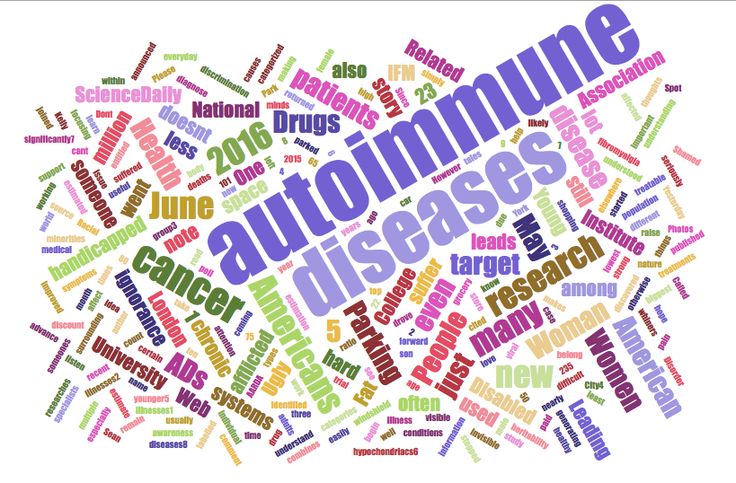
Autoimmune Diseases_ The Silent Epidemic
According to the National Institutes of Health, autoimmune diseases are a leading cause of death and disability in the United States. These illnesses occur when the body’s immune system attacks its own cells and tissues. The cause is unknown in most cases, and the symptoms can be vague and mimic other conditions. As a result, autoimmune diseases often go undiagnosed for years. This can lead to serious health complications.
In this article, we’re going to shed light on the silent epidemic of autoimmune diseases. We’ll explore the causes, symptoms, and treatments of these conditions. We’ll also provide tips on how you can protect yourself from developing an autoimmune disease.
What are autoimmune diseases?
Autoimmune diseases are a group of illnesses that occur when the body’s immune system attacks its own cells and tissues. The immune system is designed to protect the body from foreign invaders, such as bacteria and viruses. However, in people with autoimmune diseases, the immune system mistakes healthy cells and tissues for foreign invaders. As a result, it attacks these cells and tissues.
There are more than 80 types of autoimmune diseases. Some of the most common include:
- Type 1 diabetes– This condition occurs when the body’s immune system attacks the cells in the pancreas that produce insulin. Insulin is a hormone that helps regulate blood sugar levels.
- Rheumatoid arthritis– This form of arthritis occurs when the body’s immune system attacks the tissues that line the joints. This leads to inflammation and pain.
- Multiple sclerosis– This condition occurs when the body’s immune system attacks the myelin sheath, a protective covering that surrounds nerve fibers. This damage disrupts communication between the brain and the rest of the body, leading to symptoms such as muscle weakness and paralysis.
What causes autoimmune diseases?
The exact cause of autoimmune diseases is unknown. However, there are a number of factors that may contribute to their development, including:
- Genetics– Autoimmune diseases tend to run in families, so genetics may play a role in their development.
- Environment– Exposure to certain environmental triggers, such as toxins or infections, may trigger the immune system to attack healthy cells and tissues.
- Stress– Stress can weaken the immune system, making it more likely to attack healthy cells and tissues.
What are the symptoms of autoimmune diseases?
The symptoms of autoimmune diseases vary depending on the type of condition. However, some common symptoms include:
- Fatigue
- Muscle aches and pains
- Joint pain
- Rashes
- Fever
- Abdominal pain
- Diarrhea
- Weight loss
These symptoms can be vague and mimic other conditions. As a result, autoimmune diseases often go undiagnosed for years. This can lead to serious health complications.
How are autoimmune diseases diagnosed?
There is no one test that can diagnose all types of autoimmune diseases. Instead, doctors use a combination of tests to reach a diagnosis. These tests may include:
- Blood tests– Blood tests can detect antibodies that are associated with certain autoimmune diseases. This can help doctors rule out other conditions.
- Imaging tests– Imaging tests, such as MRI or CT scans, can help doctors detect damage to the tissues and organs caused by autoimmune diseases.
- Biopsy– In some cases, doctors may need to take a sample of tissue from the affected area in order to confirm a diagnosis. Biopsy results can also help doctors determine the type of autoimmune disease.
How are autoimmune diseases treated?
There is no cure for autoimmune diseases. However, there are a number of treatments that can help manage the symptoms and prevent further damage. These treatments may include:
- Medications– Medications, such as corticosteroids or immunosuppressants, can help reduce inflammation and prevent the immune system from attacking healthy cells and tissues.
- Therapy– Physical, occupational, or speech therapy can help people with autoimmune diseases cope with their symptoms and maintain their quality of life.
- Surgery– In some cases, surgery may be necessary to remove damaged tissue or organs. You should talk to your doctor about the risks and benefits of surgery.
What are the complications of autoimmune diseases?
Autoimmune diseases can lead to a number of serious health complications, including:
- Organ damage– If left untreated, autoimmune diseases can damage organs and tissues. This can lead to organ failure or disability.
- Infertility– Autoimmune diseases can damage the reproductive organs, making it difficult or impossible to conceive.
- Certain types of cancer– Some autoimmune diseases, such as lupus and rheumatoid arthritis, increase the risk of certain types of cancer.
Autoimmune diseases are serious health conditions that can lead to a number of serious complications. If you think you may have an autoimmune disease, it is important to see your doctor for a proper diagnosis. With treatment, you can manage your symptoms and prevent further damage.
